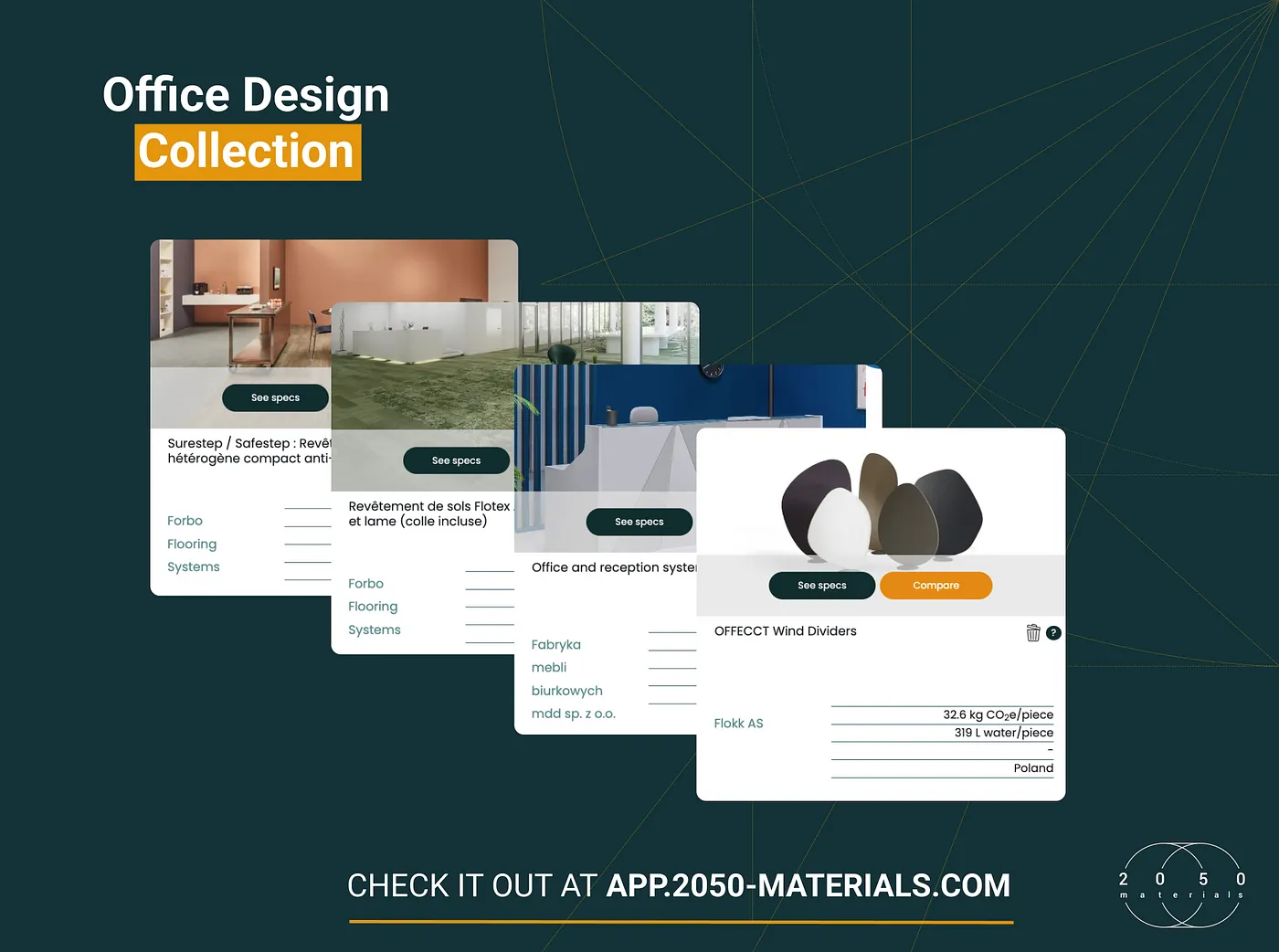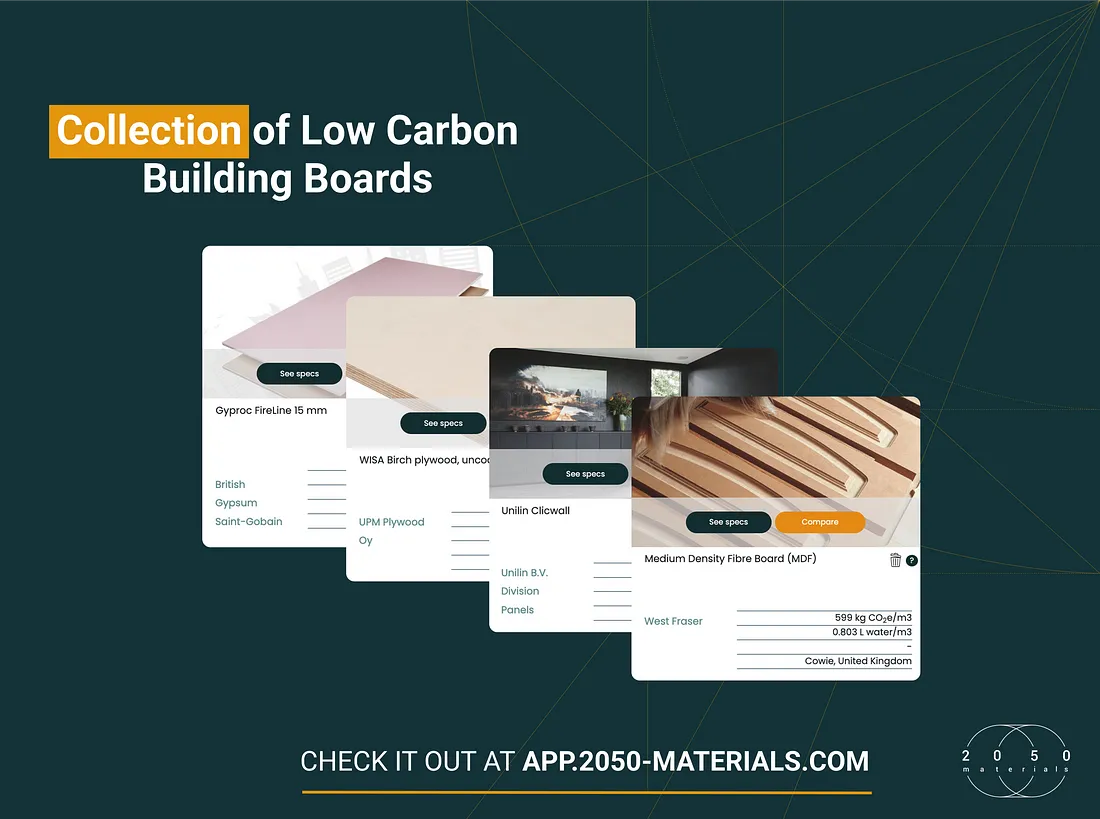Why the construction sector NEEDS an API to sustainability data

The construction industry is one of the largest consumers of raw materials and natural resources, and it generates an estimated 39% of the world’s carbon emissions according to the World Green Building Council. As the world tries to curb the worst impacts of climate change, it’s important for the construction industry to harness the power of data in that effort.

Source: www.constructionexec.com
The importance of structured product sustainability data
One of the biggest challenges facing the construction industry is the lack of structured and trustworthy product sustainability data.

Anyone who has gone through the exercise of finding sustainability data of specific products can likely attest that they have spent at least a few hours navigating complex manufacturer websites and certifications to get the numbers they need.
However, the construction industry has a lot of existing, available data. The challenge is just around collecting and maintaining that data, as well as structuring it according to different classification systems.

This data is essential for designers and contractors to make informed decisions about the materials they use in their projects. When it is available, it can help power valuable tools which help reduce climate impacts.
 Without structured data, it’s difficult to know which materials will lead to a sustainable project and which will not.
Without structured data, it’s difficult to know which materials will lead to a sustainable project and which will not.
What is an API?
An API (Application Programming Interface) is a set of protocols, routines, and tools for building software applications. APIs are important in calculating embodied carbon emissions in building projects because they allow for the integration of data from various sources into a single platform. This makes it easier to calculate embodied carbon emissions by automating the process and reducing the risk of errors.

By 2050 Materials
For example, an API can be used to integrate data from various sources such as material suppliers, manufacturers, and contractors into a single platform. This data can then be used to calculate embodied carbon emissions for a building project.
Opportunities for designers and contractors
Having access to structured product sustainability data opens up opportunities for designers as well as contractors to win more projects, save on costs, and eventually be more profitable.
 Better data → Less manual work → More clients
Better data → Less manual work → More clients
By using sustainable materials, designers can create buildings that are more energy-efficient and have a smaller carbon footprint. This can help them win more projects as clients become more environmentally conscious.
Contractors on the other hand can also benefit from good data. By integrating data considerations in their processes (cost estimations, procurement, etc.) they can (1) save on costs in the long run by reducing emissions and (2) offer new services to their clients. This can help them be more competitive in the market and eventually be more profitable.
2050 Materials’ API
At 2050 Materials provides a free-to-use platform at app.2050-materials.com powered by a vast database of product EPDs and other certifications.
Under the hood, we also power other solutions in the industry through our easy-to-use API.
2050 Materials’ API provides access to product and material data related to sustainability factors such as carbon emissions, circularity, and health impacts. This information can be used to inform sustainable product design decisions and support environmentally conscious business practices. Our documentation (available on demand) also includes details on authentication and troubleshooting, as well as data sources and collection methodology.

2050 Materials API
Sources
- “The construction industry is getting greener: Why, how, and what’s changing?” by Forbes
- “Buildings and construction” by European Commission
- “Global Status Report for Buildings and Construction 2019” by International Energy Agency
Dive deeper into the importance of data in achieving climate change by reading this interesting article.
Related articles

The Most Interesting Low Carbon Products in Office Design
In this article and collection, we highlight 11 outstanding products that contribute to a lower carbon footprint in office design.
Read more
Top Low Carbon Building Boards: Performance, Benefits, and Use Cases
The building boards highlighted in this article and collection showcase low-carbon innovation in modern construction.
Read more
11 Interesting Energy Efficient Building Materials for Reduced Environmental Impact
Discover a collection of energy efficient building materials that not only reduce greenhouse gas emissions but also contribute to long-term durability.
Read more